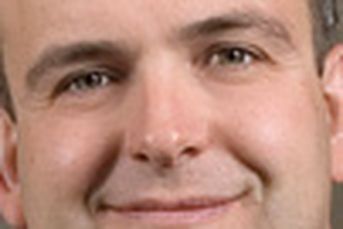Reg reform, money woes make RIAs’ jobs stressful
Registered investment advisers are concerned about new regulations and sensitive to the impact of the financial downturn on their personal lives and finances, but they remain surprisingly upbeat about their jobs and the economy, according to a new survey.
Registered investment advisers are concerned about new regulations and sensitive to the impact of the financial downturn on their personal lives and finances, but they remain surprisingly upbeat about their jobs and the economy, according to a new survey.
Asked to name their major business concern, 42% of respondents in TD Ameritrade Holding Corp.’s latest RIA Sentiment Survey cited regulatory change — up almost 25% from the responses in the poll taken three months earlier.
That concern, reflecting the attention paid to the Obama administration’s plan to impose a fiduciary standard on all financial advisers, far outpaced the second- and third-most-cited concerns: increasing client satisfaction (39%) and improving profitability (31%).
However, almost half of the 501 advisers surveyed (43%) between Aug. 28 and Sept. 8 said that their own financial situation was the aspect of their lives most negatively affected by the downturn, with mental health given as the second-most-frequently-cited response (16%).
Somewhat paradoxically, 46% of the respondents cited job satisfaction as the aspect of their lives most positively affected by the financial downturn, followed by 30% who said that their finances improved.
UNDER STRESS
The stresses of the job remain strong, with 42% of advisers saying that their top personal goal in 2010 is to spend more time with family and friends, 31% citing improving their health, and another 31% saying that they want to enjoy more leisure time.
Also demonstrating the difficulty of the job is that fewer than 30% said that their chief aspiration is to reach a new level in their career and just 18% said that they want to acquire new professional skills,
Brian Stimpfl, managing director for advisor advocacy and industry affairs at TD Ameritrade Institutional, which champions the independent-advisory model, said in an interview that most advisers surveyed considered their practices to be prospering, as measured by at least one metric.
More than 60% added clients on a net basis during the downturn, and 90% said that their total client numbers remained steady or rose over the past six months. The advisers surveyed said 72% of their new clients, on average, came from wirehouses or independent broker-dealers. Conversely, if a client left, the assets were lost to banks or other independent advisers.
Personnel issues continue to be the operational challenge cited most frequently by RIAs, and technology is the area where most (62%) are laying out money in order to build their businesses. Just 28% of respondents said that they are cutting back on technology spending.
Marketing was the second-most-cited area of expense growth, while travel was the most frequently cited target for expense cutting, followed by salaries/bonuses (46%) and client appreciation activities (44%).
Seventy-two percent of respondents said that their business spending in-creased or remained unchanged in the third quarter.
The much-debated question of whether the fiduciary standard that governs independent advisers should be applied to stockbrokers who give advice continues to garner attention. Sixty-nine percent of respondents said that the Obama administration’s fiduciary proposal is positive, with 39% calling it a small step in the right direction and 30% a major step toward financial reform.
And 55% said that they disagree with the theory that a level playing field — if that can be achieved without diluting the standard — would deprive RIAs of a key competitive advantage against broker-dealers. Almost one of every three, however, thinks that it will rob them of marketing power.
Not surprisingly, as equity markets picked up steam, advisers said their clients decreased their allocations to cash by 4% over the previous three months as assets were shifted increasingly to fixed-income and international investments.
Larger RIAs, with assets under management of $100 million to $250 million, expressed more optimism than their peers that the economy will continue to improve over the next three months, but only 48% of all respondents said that they are upbeat about the prospects for recovery.
Those anticipating recovery by yearend expect to see a 9% to 10% average rate of return on their clients’ portfolios over the next 12 months, the survey found.
The survey, conducted by Maritz Inc., has a margin of error of 4.4%, meaning that in 19 of 20 cases, results will differ by no more than 4.4 percentage points in either direction. The RIAs surveyed included both clients of TD Ameritrade Institutional and of other custodians.
E-mail Jed Horowitz at [email protected].
Learn more about reprints and licensing for this article.




